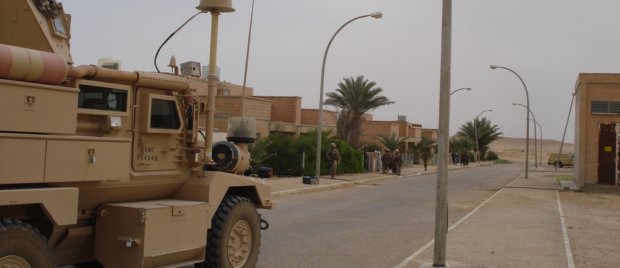I read a great article today about why the surge worked. Many of the opinions I read are from those who don’t know. This is different. Please follow the link to the original. It is based on an interview with General Jack Keane. Below is my block quote summary. It is mostly from the article. I put my own comments in italics.
BTW – Also read this article in Foreign Affairs.

Talking about the first phase of the war, just after the invasion.
Gen. Keane. “It didn’t work. And why didn’t it work? Because the enemy voted and they took advantage. The fact that we did not adjust to what the enemy was doing to us and the Iraqis were not capable of standing by themselves — that was our major failure. . . . It took us all a while to understand the war and [that] we had the wrong strategy to fight it. Where I parted from those leaders [at the Pentagon] is when we knew the facts — and the facts were pretty evident in 2005 and compelling in 2006 — and those facts were simply that we could not protect the population and the levels of violence were just out of control.”
President Bush chooses victory over popular politics.
In late 2006, after the midterm election debacle for Republicans, pressure rose for a quick if dishonorable exit from Iraq. Gen. Keane met Frederick Kagan, who was putting together a report on an alternative strategy for Iraq at the American Enterprise Institute. On Dec. 11, both men found themselves at the White House to push the plan. Congress, the Joint Chiefs, Iraq commander Gen. George Casey and the Iraq Study Group all wanted a fast drawdown. President Bush ignored their advice. Gen. Petraeus was sent out in February to oversee the new, risky and politically unpopular surge.
We did what they said couldn’t be done.
“It’s a stunning turnaround, and I think people will study it for years because it’s unparalleled in counterinsurgency practice,” he says. “All the gains we’ve achieved against al Qaeda, the Sunni insurgency, the Iranians in the south are sustainable” — a slight pause here — “if we’re smart about it and not let them regroup and get back into it.”
This is the part I really think is true:“I have a theory” about the unexpectedly fast turnaround, Gen Keane says. “Whether they be Sunni, Shia or Kurd, anyone who was being touched by that war after four years was fed up with it. And I think once a solution was being provided, once they saw the Americans were truly willing to take risks and die to protect their women and children and their way of life, they decided one, to protect the Americans, and two, to turn in the enemies that were around them who were intimidating and terrorizing them; that gave them the courage to do it.”
This is what I saw in Anbar. This is what I think was important for us. This is why w/o the surge, our friends would be dead and the terrorists would be getting ready to take the war to us someplace else. The U.S. came “within weeks or months” of defeat in Iraq in 2006, he says. The consequences of that were “unacceptable” for the region, “not to speak of an institution that I loved.” And what about the military chiefs who thought the extra battalions and extended service tours would be too much of a strain on American forces? “When people talk about stress and strain on a force, the stress and strain that would come from having to live with a humiliating defeat would be quite staggering.”
Right! Do read the whole article.
